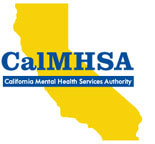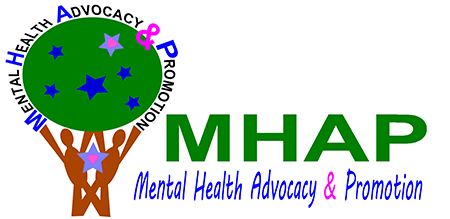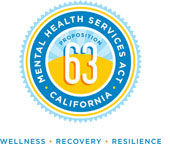Faculty / Staff / Parent Resources
Quick Links
Faculty and Staff Resources
Faculty and Staff Handbooks on Assisting Distressed Students
Guide to Helping a Distressed Student, CSU Bakersfield
Tips for Faculty/Staff and How to Assist Emotionally Distressed Students, CSU Chico
Helping Students in Distress, CSU East Bay
Recognizing Distressed Students and Guidelines for Dealing with Distressed Students, Fresno State University
Helping Students in Distress: A Faculty and Staff Guide for Assisting Students in Need, Cal State Fullerton
Guide to Classroom Management: The Emotionally Troubled Student, Humboldt State University
Faculty Guide: Assisting the Emotionally Distressed Student, CSU Long Beach
Helping Emotionally Distressed Students: The Role of Faculty and Staff, Cal State Monterey Bay
Assisting Students in Distress, CSU Northridge
Helping the Emotionally Distressed Student: A Guide for Faculty and Staff, Cal Poly Pomona
Faculty and Staff Guide for Responding to Distressed and Distressing Students, CSU San Bernadino
Enhancing Communication & Working with the Emotionally Distressed Student, San Diego State University
How to Assist the Emotionally Distressed Student, San Francisco State University
Managing Disruptive Behaviors and De-Escalating Aggressive Behaviors, San José State University
Faculty Guide: Assisting the Emotionally Distressed Student, Cal Poly SLO
Helping Students in Distress, Sonoma State University
Tips on Making a Referral to Counseling Services
During the course of your career, you will likely come across students that display unusual or concerning behavior, as well as students who share their emotional and/or psychological problems or distress. In cases where you think the student's behavior is impairing his/her academic performance or the performance of others, and/or you believe professional help is otherwise warranted, you may want to initiate a conversation with the student. During the meeting, you will want to:
- Identify the behaviors that concern you
- Be respectful, direct, and matter of fact. Talk about your concerns without minimizing or exaggerating them. Be straight-forward about your intentions, for example, that you believe professional help could be very helpful. It is helpful to be knowledgeable in advance about the counseling services for your particular campus. Looking at the counseling website together can be helpful. Remind the student that counseling services are confidential.
- If you have reason to suspect the student may be having thoughts of suicide, ask about it in a calm and direct matter. Remain non-judgmental. Never promise confidentiality in such cases.
- Let the student be "in the driver's seat" in making the final decision about counseling. If the student declines a referral for counseling, and you are concerned about suicide or other safety issues, it is best to contact the Dean of Students or Counseling Services for advice. If suicide risk is high (e.g., the student expressed immediate desire and intent to end his/her life), dial 9-1-1 for immediate assistance. Campus police are trained to assess the situation.
- If the student agrees to a referral, you can either leave it to the student to make an appointment, call the counseling center to give them a "heads up" the student is coming in immediately, let the student call the counseling center while he/she is still in your office, or walk the student over to counseling services yourself. The latter choice is the best one to make if you have any concerns about the student's safety or you think the student may lose momentum to follow through with his/her decision if s/he doesn't act immediately.
When to Call for Help
The following behaviors indicate that the student is in crisis and needs emergency care. In these cases, it is best to stay calm, call 9-1-1, inform your supervisor and the appropriate Student Affairs officer (such as the Dean of Students).
- Highly disruptive behavior (aggression, hostility, etc.)
- Threat of violence
- Threat of suicide; overt suicidal thoughts or gestures
- Inability to communicate clearly (incoherence, garbled or slurred speech, disjointed or strange thoughts)
- Apparent loss of contact with reality (e.g., hearing things that are not there, odd beliefs or actions)
The following behaviors indicate that the student may be in distress and need help. Consider consulting with a therapist at your counseling center, making a referral to the counseling center, and/or involving the Dean of Students or Office of Student Rights and Responsibilities.
- Emotions
- Depressed, apathetic, or agitated mood (especially if it seems out of character)
- Excessive crying
- Inappropriate or exaggerated emotional reactions to situations
- Excessive activity or talkativeness; grandious or elated mood
- Behavior
- Marked change in appearance or hygiene; scent of alcohol or marijuana on breath or clothing
- Disruptive behaviors that make it difficult for you to manage your role or classroom
- Change in interpersonal interactions (e.g., avoiding or dominating discussions)
- Difficulty staying awake in class
- Academics
- Poor academic performance that is unexpected, especially a change from high to low grades
- Excessive absences, especially if prior class attendance was good
- Repeated attempts to postpone tests or assignment deadlines
- Unusally morbid or violent themes on class projects (papers or artwork)
National Crisis Numbers
Suciide Prevention
National Suicide Prevention Lifeline 800-273-8255 (800-273-TALK)
Suicide Prevention Hotline 877-727-4747
Sexual Assault
National Sexual Assault Online Hotline
National Sexaul Assault Phone Hotline: 800-656-4673 (800-656-HOPE)
Domestic Violence
Natilonal Domestic Violence Hotline: 800-799-7233 (800-799-SAFE) or 800-787-3224 (TYY)
 California Mental Health Services Authority
California Mental Health Services Authority
 Suicide is Preventable: Know the Signs
Suicide is Preventable: Know the Signs
Benton, S.A. & Benton, S.L. (2006). College student mental health: Effective services and strategies across campus. National Association of Student Personnel Administrators, Inc.
Kadison, R. & DiGeronimo, T.F. (2004). College of the overwhelmed. San Francisco: Jossey-Bass.
Skalski, Anastasia and Smith, Marta (2006). Responding to the Mental Health Needs of Students. From NASP online.
The Reach Institute: The "Action Signs" Project: A toolkit to help parents, educators, and health professionals identify children at behavioral and emotional risk. The toolkit was developed under a contract with SAMHSHA/HHS.
Worthington, E.L. (1982). When someone asks for help: A practical guide for counseling. Downers Grove, IL: InterVarsity Press.
Key Phone Numbers within the California State University System: for Psychological and Behavioral Problems and Crises
| CSU Campus | Counseling |
Health |
Campus Police |
Other |
Other |
BAKERSFIELD |
616-654-3366 |
616-654-2394 | 661-654-2111 | Services for Students w/ Disabilities 661-654-3360 |
Student Rights & Responsilibities 661-654-2680 |
CHANNEL ISLANDS |
805-437-2088 |
805-437-8828 | 805-437-8444 | Student Support Svcs 805-437-3560 | Veterans Affairs 805-437-2745 Title IX Coordinator 805-437-8425 |
CHICO |
530-898-6345 |
530-898-5241 | 530-898-5555 | Safe Place (Rape Crisis) 530-898-3030 | Butte County Crisis Line 530-891-2810 |
DOMINGUEZ HILLS |
310-243-3818 |
310-243-3629 | 310-243-3639 | Suicide Prevention Hotline 877-727-4747 | Rape Crisis Hotline 562-597-2002 |
EAST BAY |
510-885-3735 |
510-885-3735 | 510-885-3791 | Academic Affairs 510-885-3711 | Accessibility Svcs 510-885-3868 Student Development & Judicial Affairs 510-885-4740 |
FRESNO |
559-278-6738 |
559-278-2734 | 559-278-8400 | Exodus Recovery Stabilization Center 559-512-8335 | Central Valley Suicide Prevention Hotline 1-888-506-5991 |
CSU Campus |
Counseling |
Health |
Campus Police |
Other |
Other |
FULLERTON |
657-278-3040 |
657-278-2800 | 657-278-3040 | Dean of Students 657-278-3211 | Title IX Diversity and Inclusion 657-278-4702 |
HUMBOLDT |
707-826-3236 |
707-826-3146 | 707-826-5555 (non-emergency) 9-1-1 or 707-826-5023 (emergency) |
Dean of Students 707-826-3504 Student Rights & Responsibilities 707-826-3504 |
North Coast Rape Crisis 707-443-2737; Humboldt Co Dept of Mental Health (psychiatric emergencies): 707-476-4094 |
LONG BEACH |
562-985-4001 |
562-985-4771 | 562-985-4101 | Dean of Students 562-985-8670 | Student Services 562-985-5587 |
LOS ANGELES |
323-343-3314 |
323-343-3300 | 323-343-3700 | Student Affairs & Judicial Affairs Officer 323-343-3103 | Rape Crisis, East LA Women's Center 800-585-6231 |
MARITIME |
707-654-1170 |
707-654-1170 | 707-654-1176, If urgent 654-1111 | Dean of Students 707-654-1182 | Administration 707-654-1176 |
MONTEREY BAY |
831-582-3969 |
831-582-3965 | 831-582-0268 | Dean of Students 831-582-4091 | |
CSU Campus |
Counseling |
Health |
Campus Police |
Other |
Other |
NORTHRIDGE |
818-677-3666 | 818-677-2100 | Dean of Students / Student Affairs 818-677-2391 | Suicide Prevention 877-727-4747 | |
POMONA |
909-869-3220 |
909-869-3220 | 909-869-3070 | Ombuds Office 909-869-2286 PolyCARES 909-869-3399 |
Judicial Affairs 909-869-6990 |
SACRAMENTO |
916-278-6461 |
916-278-6461 | 916-278-6851 | Student Affairs 916-278-6060 | Residential Life Coordinator on Duty 916-869-4382 |
SAN BERNADINO |
909-537-5040 |
909-537-5241 | San Bernadino Co. Crisis Response Team (mental health crises) 909-421-9233 | ||
SAN DIEGO |
619-594-5220 |
619-594-5281 | 619-594-1991 | Center for Student Rights & Responsibilities 619-594-3069 | San Diego Access & Crisis LIne 888-724-7240 |
SAN FRANCISCO |
415-338-2208 or TDD is 415-338-4321 |
415-338-1251 | 415-338-7200 | SF Suicide Prevention 415-781-0500 | |
CSU Campus |
Counseling |
Health |
Campus Police |
Other |
Other |
SAN JOSE |
408-924-5910 (press 4 for after hour emergencies) |
408-924-6122 | 408-924-2222 | Santa Clara County Suicide & Crisis Service (24 hours) 855-278-4204 | SJSU Crisis Assessment & Intervention Team (non-emergency) 408-924-5900 |
SAN LUIS OBISPO |
805-756-2511 |
805-756-1211 | 805-756-2281 | Dean of Students 805-756-0327 Office of Student Rights and Responsibilities 805-756-2794 | SAFER (Sexual Assault Resources) 805-756-2282 |
SAN MARCOS |
760-750-4915 |
760-750-4915 | 760-750-4567 | Dean of Students 760-750-4935 Student Outreach & Referral (SOAR) Office 760-750-7627 | San Deigo Co. Crisis Line 888-724-7240 |
SONOMA |
707-664-2153 |
707-664-2921 | 707-664-4444 | Chief Student Affairs Officer 707-664-2838 | Sonoma Co. Crisis Line 707-576-8181 |
STANISLAUS |
209-663-3381 |
209-667-3396 | 209-667-3114 | Dean of Students / Student Affairs Office 209-667-3177 | Compliance Officer (Title IX concerns) 209-667-3006 |
Parent Resources
General Tips & Resources for Parents of University Students
Handouts and Guides
Communication Tips for Parents, American Psychological Association
Director of Student Health and Counseling Service's Welcome Message to Parents, CSU San Marcos
Family Resource Guide for Supporting College Student Wellness and Mental Health, Cal Poly Pomona
Family Transitions: Healthy Good-Byes and New Beginnings (ppt), CSU Chico
Improving Mental Health in Young Adults and Teens, by Angela Lambert, July 2014.
Information for Parents & Family, Sonoma State University
Parent and Student Concerns About Going to College (pdf), CSU Chico
Parent Resources, including Helpful Tips and Communicating Effectively, San Diego State University
Resources for Parents, CSU Northridge
Resources for Parents & Family, CSU Channel Islands
Tips for Parents from Cal State Monterey Bay
Books
Coburn, Karen Levin and Treeger, Madge Lawrence, Letting Go (Fifth Edition): A Parents' Guide to Understanding the College Years, Harper Perennial, 2009
Kadison, Richard and DiGeronimo, Theresa Foy, College of the Overwhelmed: The Campus Mental Health Crisis and What to Do About It, Jossey-Bass, 2005
Koocher, Gerald and La Greca, Annette, The Parents' Guide to Psychological First Aid: Helping Children and Adolescents Cope with Predictable Life Crises, Oxford University Press, 2010
Websites
Affordable Colleges Foundation: no-cost technology and affordability resource for students
College Affordability Guide: Information on making college education more affordable. Includes Competence-Based Education (MOOCs and Independent Learning), Affordable Degree Programs, List of Affordable Schools, etc.
College Parents Central: Information for the Parents of College Students: Information for parents on your helping your children through the college experience, including preparation, transition, adjustment, and completion.
College Parents of America: a membership organization comproised of current and future college parents. The mission is to assist families in the successful preparation, transition, adjustment and completion through college.
College Tips for Parents: tips and vital news for parents of college kids or high school seniors
National Alliance on Mental Illness (NAMI): the nation's largest grassroots mental health organization; advocates for access to services, treatment, supports, and research. NAMI works in local communities to raise awareness and provide essential and free education, advocacy and support group programs.
Natonal Resource Center for First-Year Experience and Students in Transition: a leader and clearinghouse for policies and best practices for all postsecondary student transitions. Includes several online courses and publications.
Supporting Family and Friends, webpage of Mental Health America
The Reach Institute: The "Action Signs" Project: A toolkit to help parents educators and health professionals identify children at behavioral and emotional risk. The toolkit was developed under a contract with SAMHSHA/HHS.
Your College Kid: articles, practial pointers, forum groups, etc.
Resources for Parents of Individuals with Alcohol or Other Drug Issues
A Guide to Keeping Kids Drug Free
The US Department of Education's Higher Education Center for Alcohol and Other Drug Prevention
Resources for Parents of Individuals with Disordered Eating
Costin, Carolyn, Your Dieting Daughter: Antidotes Parents can Provide for Body Dissatisfaction, Excessive Dieting, and Disordered Eating, Routledge, 2013
Natenshon, Abigail H., When Your Child Has an Eating Disorder: A Step-by-Step Workbook for Parents and Other Caregivers, Jossey-Bass, 1999
Parent Toolkit from National Eating Disorder Association: understand more about how to support a family member or friend affected by an eating disorder
NationalEatingDisorders.org: offers many useful resources for parents on the topic of Eating Disorders, including a Parent, Family & Friends Network, with free webinars and support programs and a "Making Connections Magazine"
Resources for Parents of Individuals with Mood Disorders
The Balanced Mind Parent Network-- A program of the Depression and Bipolar Support Alliance, guides families raising children with mood disorders to the answers, support, and stability they seek.
Mondimore, Francis Mark, Bipolar Disorder: A Guide for Patients and Families (2nd Edition), John Hopkins University Press, 2006
Depression and Bipolar Support Alliance-- resources for family, friends, peers
Resources for Parents of Lesbian, Gay, Bisexual, Transgendered, & Questioning Individuals
Children of Lesbians and Gays Everywhere: COLAGE; organization providing information and advocacy for children of an LGBTQ parent
Family Equality Council: organization supporting LGBTQ parents and families
Parents, Family, and Friends of Lesbians and Gays: PFLAG-- organization supports LGBTQ individuals and their families
Proud Parenting: general interest site for LGBTQ parents
My princess boy: Acceptance of the male image: Cheryl Kilodavis. A mother's story of learning to accept her son's differences (video)
Resources for Parents of Individuals with Psychosis / Schizophrenia
Kaye, Randye, Ben Behind His Voices: One Family's Journey from the Chaos of Schizophrenia to Hope, Rowman & Littlefield Publishers, 2011
Resources to Help with Family-Related Issues
Children and Divorce: Helping Kids After a Break-Up, Mayo Clinic
When a Parent has a Mental Illness: Issues and Challenges, article from Mental Health America
Resources for Families of Individuals at Risk for, or Who Completed, Suicide
- Risk Factors, Warning Signs and Resources for Understanding Suicide
- Suicide Prevention Article Series
- Suicide Hotlines and Prevention Lifeline: 1-800-273-TALK
- A Guide for Taking Care of Your Family Member After Treatment in the Emergency Department
- For people who have witnessed a suicide death
- Support and Resources for Coping with Suicide Loss
Robert D'Angelo + Francesca Fedeli: In our baby's illness, a life lesson (a TED talk): The couple discovered their 10 day old baby, Maryo, had experienced a perinatal stroke. With Mario unable to control the left side of his body, they grappled with tough questions: Would he be "normal?" and Could he lead a full life? The poignant story of parents facing their fears-- and how they turned them around.
Faith Jegede: What I've learned from my autistic brothers (a TED talk): The funny and moving story of growing up with two autistic brothers
My princess boy: Acceptance of the male image: Cheryl Kilodavis. A mother's story of learning to accept her son's differences
top of page


 Disability Rights California
Disability Rights California